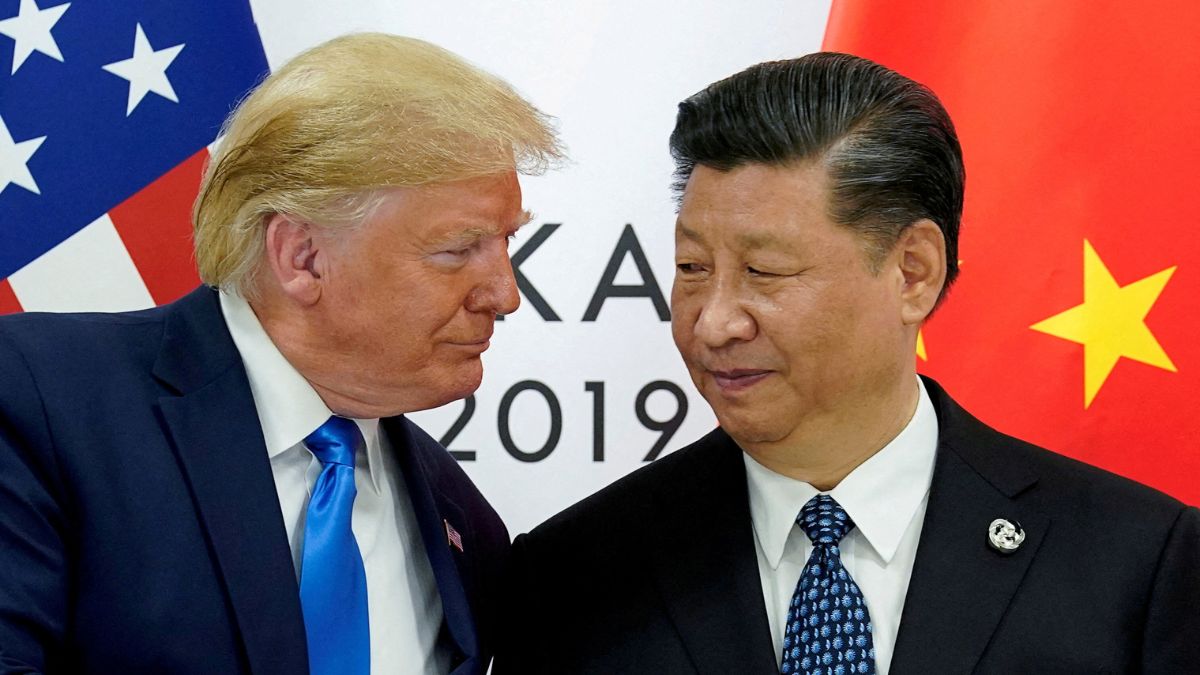Top US and Chinese officials met in Stockholm on Monday for over five hours of talks aimed at easing trade tensions and extending their current trade truce by another 90 days.
Held at the Swedish prime minister’s office, the negotiations marked the latest effort to resolve long-standing economic disputes between the world’s two largest economies.
US Treasury Chief Scott Bessent led the American delegation, while Chinese Vice-Premier He Lifeng represented Beijing.
China faces an August 12 deadline to finalise a lasting tariff deal with the Trump administration, following provisional agreements in May and June that paused tit-for-tat tariffs and export restrictions, including on rare earth minerals.
The talks are expected to resume on Tuesday(July 29).
I’d love to see China open up: Trump
Speaking at a press conference in Scotland alongside UK Prime Minister Keir Starmer, President Donald Trump briefly addressed the discussions. “I’d love to see China open up their country,” he said.
US Trade Representative Jamieson Greer, who also took part in the Stockholm meeting, tempered expectations of any major breakthrough. “What I expect is continued monitoring and checking in on the implementation of our agreement thus far… and setting the groundwork for enhanced trade and balanced trade going forward,” he told CNBC.
Without a deal, global supply chains risk fresh disruption, as triple-digit US tariffs could snap back into effect, effectively creating a bilateral trade embargo.
The Stockholm round follows Trump’s recent trade agreement with the European Union, imposing a 15% tariff on most EU exports to the US.
Analysts believe Washington and Beijing are likely to agree to another 90-day freeze on tariffs and tech export restrictions, potentially paving the way for a meeting between Trump and Chinese President Xi Jinping later this year. According to the Financial Times, the US has temporarily paused certain tech export controls to preserve momentum in talks and support Trump’s push for a summit.
Taiwan President to delay US trip in August
Meanwhile, Taiwan remains a sensitive issue hovering over the negotiations. Sources told Reuters that Taiwan President Lai Ching-te is expected to delay a planned August trip to the US, aiming to avoid provoking Beijing and jeopardising trade discussions. China views Taiwan as part of its territory and strongly opposes any expression of US support for Taipei.
US lawmakers plans to strain on ongoing trade talks
Back in Washington, bipartisan US senators are preparing to introduce legislation targeting China over its policies on Taiwan, human rights, and political dissent, moves that could further complicate the negotiating atmosphere.
Earlier US-China talks in Geneva and London this year focused on scaling down retaliatory tariffs and restoring trade in key sectors such as rare earths and advanced technology, including Nvidia’s H20 AI chips. However, core economic disagreements remain unresolved. Washington accuses Beijing of distorting global markets with cheap exports, while China opposes U.S. export controls aimed at curbing its tech development.
Impact Shorts
More ShortsAnalysts warn that talks with China are far more complex than with other Asian nations, and will require significantly more time. Beijing’s dominance in rare earth minerals and magnets—crucial for everything from military systems to electric motors—continues to give it strategic leverage in the negotiations.
)